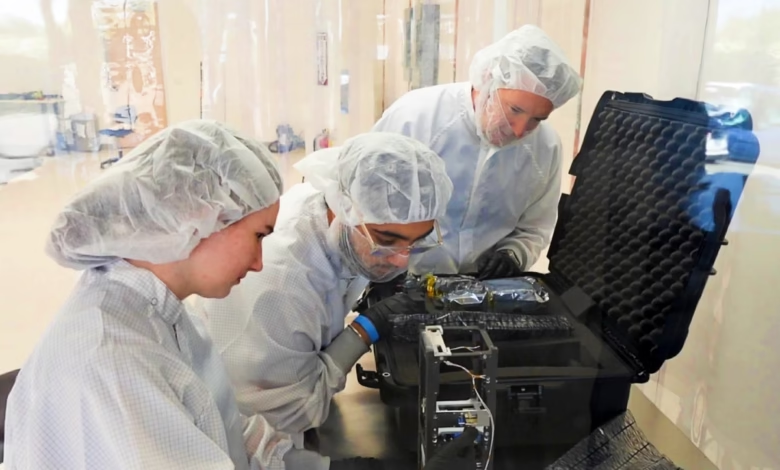19-Year-Old’s YC-Backed Apolink Raises $4.3M for 24/7 Satellite Connectivity

▼ Summary
– Apolink, a Y Combinator-backed space-tech startup, raised $4.3 million in a seed round at a $45 million valuation to build a real-time connectivity network for LEO satellites.
– The startup addresses satellite downtime in low Earth orbit by offering 24/7 connectivity through a hybrid-RF optical architecture, eliminating the need for specific hardware.
– Founded by 19-year-old Onkar Singh Batra, Apolink plans to deploy a 32-satellite constellation by 2029, aiming for 99% uptime and low latency.
– Unlike competitors, Apolink’s solution is hardware-independent and focuses solely on virtual relays, avoiding the bandwidth limitations of multipurpose constellations.
– The startup has secured over $140 million in letters of intent and plans its first demo mission in Q2 2026 via a SpaceX rideshare.
A 19-year-old entrepreneur’s space-tech venture, Apolink, has secured $4.3 million in seed funding to revolutionize satellite connectivity. Backed by Y Combinator, the startup is developing a real-time network to eliminate communication blackouts for satellites in low Earth orbit (LEO). The oversubscribed funding round values the company at $45 million post-money, signaling strong investor confidence in its mission.
Satellites often lose contact with ground stations during parts of their orbit, creating frustrating dead zones. While existing solutions like relay satellites and global ground networks help, they don’t provide seamless coverage. Apolink’s hybrid-RF optical architecture aims to bridge this gap by ensuring near-constant connectivity without requiring specialized hardware from users.
The brainchild of Onkar Singh Batra, Apolink builds on his early fascination with space technology. At just 14, he began exploring satellite systems, later developing India’s first open-source satellite, InQube, while still in high school. His hands-on experience revealed a critical flaw, existing inter-satellite links lacked interoperability, forcing operators to rely on proprietary hardware.
Unlike competitors such as Amazon’s Kuiper or SpaceX’s Starlink, which prioritize multipurpose constellations, Apolink is laser-focused on providing dedicated virtual relays. This approach ensures higher bandwidth availability and eliminates the need for costly optical terminals on customer satellites. The company’s FCC license further simplifies adoption by removing additional regulatory hurdles.
Apolink’s roadmap includes an initial demo mission in 2026 aboard a SpaceX rideshare, followed by a two-satellite test in 2027. By 2029, the startup plans to deploy a full constellation of 32 satellites, promising 99% uptime and latency as low as 2-3 seconds. Early traction is strong, with over $140 million in letters of intent from industry leaders like Astro Digital and Hubble Network.
The seed round attracted notable backers, including 468 Capital, Unshackled Ventures, and Jump Crypto’s Kanav Kariya. With a lean but experienced team and a 4,000-square-foot R&D facility, Apolink is poised to redefine satellite communications, one orbit at a time.
(Source: TechCrunch)





